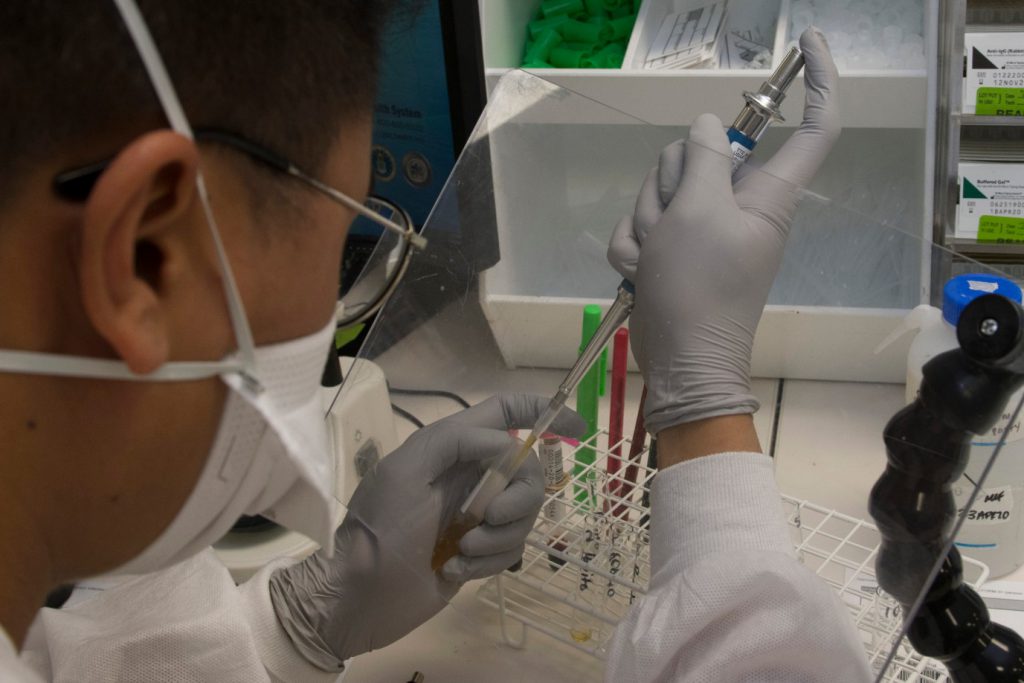COVID-19 has affected much of the world for many months and has resulted in collapses of medical systems, business shutdowns, and stay-at-home lockdowns. As part of the battle against COVID-19, tests are used to identify positive patients with active infections. Yet, nasal swab tests are not 100% accurate. Because of this, researchers are proposing an alternative COVID-19 detection method through antibody testing.
The SARS-CoV-2 coronavirus, which causes COVID-19, takes over human cells and uses them to make more viruses, sometimes resulting in deadly symptoms. During infection, the virus incorporates part of its genetic sequence—unique to each virus—into cells. One way to identify viral infection is to directly test mucus for this genetic information by swabbing the upper nasal passages. Nasal swabbing tests are based on a widely used technique called polymerase chain reaction (PCR), which copies the virus’s genetic information many times so it can be more easily observed. While PCR is generally reliable, not all positive cases can be detected; in particular, asymptomatic cases may be difficult to detect.
Researchers wanted to know if an antibody-based test could be used to determine COVID-19 infection. After viral infection, the body prepares for another coronavirus invasion by producing antibody proteins that can recognize and attack it before it spreads. Those antibodies give some immunity towards the virus by identifying parts of the virus as foreign. If you get infected again, your immune system will attack more readily. This is the body’s way to prevent future repeat viral infections. Antibodies are detected in most patients after two weeks in related diseases such as SARS (severe acute respiratory syndrome) and MERS (Middle East respiratory syndrome). The researchers hypothesized that COVID-19 virus would work similarly, and testing for antibodies would be more sensitive than PCR.
To determine antibody presence and abundance in COVID-19-positive patients, researchers first measured the levels of two types of antibodies, IgG and IgM, in 70 COVID-19-positive patients over three weeks. One week after the first symptoms, either IgG or IgM could be detected in 60% of patients, with almost 100% of patients displaying either antibody by the end of 3 weeks. The antibody level within the patients also appeared to increase over time. Antibody levels were greater in severely ill patients compared with non-severe patients, although the small study size requires wider testing to make more definitive conclusions.
Next, researchers tracked antibody levels of 63 COVID-19-positive patients until discharge. All of the patients except two exhibited antibodies during the study. 26 of these patients did not initially exhibit antibodies, but began to exhibit antibodies over the course of the observation period. However, the researchers could not find a direct correlation between antibody levels and symptoms or clinical severity.
The researchers next studied whether the World Health Organization’s (WHO) criteria for antibody testing of MERS could be used for COVID-19. WHO criteria says that patients can be considered viral-positive if (1) antibodies are not detected at first, but then become detectable over the course of the disease, or (2) if detected, the antibody levels increase more than four times from the initial amount. To test this, antibody samples were collected from 41 COVID-19-patients in their first week of presenting symptoms. The samples were compared with antibody samples collected 2-3 weeks later. Out of those 41 patients, 29 met the WHO criteria.
Finally, the researchers wanted to know whether an antibody-based test could detect positive cases that were missed by PCR-based testing. They studied antibody levels in 52 apparent COVID-19-negative patients (determined by PCR). Four patients displayed positive-diagnosis antibody levels, suggesting that some apparent COVID-19-negative patients were missed by the PCR test.
Antibody-based testing was then applied to a cluster of 164 people that interacted with COVID-19-positive patients. 148 people tested negative by PCR. The remaining 16 tested positive by PCR, three of which were asymptomatic. Thirty days after viral exposure, all COVID-19-positive diagnoses exhibited antibodies. Seven of the 148 negative diagnoses also exhibited antibodies, suggesting that these cases were missed by PCR-based testing.
Further development of antibody-based testing could assist in confirmation of COVID-19-infection cases missed by PCR, which could help public health experts gain a wider view of the viral spread. Right now, antibody-based testing is still not accurate enough to be used as a standalone test, and must be applied with clinical observation and PCR testing for best results.


